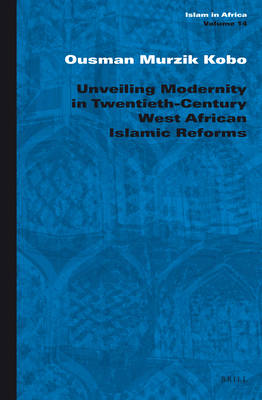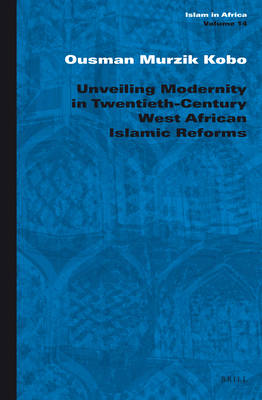
Je cadeautjes zeker op tijd in huis hebben voor de feestdagen? Kom langs in onze winkels en vind het perfecte geschenk!
- Afhalen na 1 uur in een winkel met voorraad
- Gratis thuislevering in België vanaf € 30
- Ruim aanbod met 7 miljoen producten
Je cadeautjes zeker op tijd in huis hebben voor de feestdagen? Kom langs in onze winkels en vind het perfecte geschenk!
- Afhalen na 1 uur in een winkel met voorraad
- Gratis thuislevering in België vanaf € 30
- Ruim aanbod met 7 miljoen producten
Zoeken
Unveiling Modernity in Twentieth-Century West African Islamic Reforms
Ousman Kobo
€ 305,45
+ 610 punten
Omschrijving
In this book Ousman Kobo analyzes the origins of Wahhabi-inclined reform movements in two West African countries. Commonly associated with recent Middle Eastern influences, reform movements in Ghana and Burkina Faso actually began during the twilight of European colonial rule in the 1950s and developed from local doctrinal contests over Islamic orthodoxy. These early movements in turn gradually evolved in ways sympathetic to Wahhabi ideas. Kobo also illustrates the modernism of this style of Islamic reform. The decisive factor for most of the movements was the alliance of secularly educated Muslim elites with Islamic scholars to promote a self-consciously modern religiosity rooted in the Prophet Muhammad's traditions. This book therefore provides a fresh understanding of the indigenous origins of "Wahhabism."
Specificaties
Betrokkenen
- Auteur(s):
- Uitgeverij:
Inhoud
- Aantal bladzijden:
- 424
- Taal:
- Engels
- Reeks:
- Reeksnummer:
- nr. 14
Eigenschappen
- Productcode (EAN):
- 9789004215252
- Verschijningsdatum:
- 14/12/2023
- Uitvoering:
- Hardcover
- Formaat:
- Genaaid
- Afmetingen:
- 163 mm x 241 mm
- Gewicht:
- 793 g

Alleen bij Standaard Boekhandel
+ 610 punten op je klantenkaart van Standaard Boekhandel
Beoordelingen
We publiceren alleen reviews die voldoen aan de voorwaarden voor reviews. Bekijk onze voorwaarden voor reviews.









